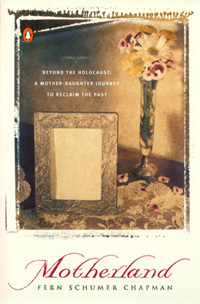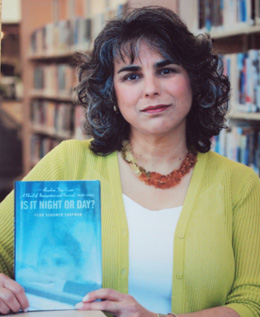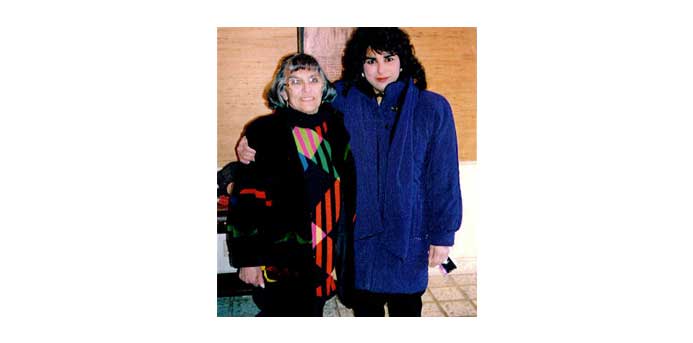It’s impossible for us to know who we truly are without knowing something of our mothers. That’s why Fern Schumer Chapman of Lake Bluff has spent years unraveling the enigma that is her mother, who was orphaned by the Holocaust.
 Chapman’s first book, “Motherland: Beyond the Holocaust: A Mother-Daughter Journey to Reclaim the Past
Chapman’s first book, “Motherland: Beyond the Holocaust: A Mother-Daughter Journey to Reclaim the Past” became a cult favorite with North Shore book clubs and was a finalist in the National Jewish Book Awards in 2000.
The book tells the story of her mother-daughter trip to Germany to visit the town where her mother, Edith, lived until she was 12. In 1938, her parents sent her to the U.S. to live with relatives in Chicago. Four years later, Edith learned that her parents had died in a concentration camp.
After the publication of “Motherland,” Chapman learned more about her mother’s story—particularly that she had come over with a small group of children as part of an American rescue effort now known as The One Thousand Children Project.
Researching the 1,000 children and talking to her mom prompted Chapman to write a book of historical fiction for young adults, “Is It Night or Day?” She assumes her mother’s voice to tell Edith’s story of immigration and survival. The book, which was published this spring, was recognized as one of Booklist’s Top 10 Historical Fiction Books for Youth, 2010, among other nods.
Chapman sat down with MakeItBetter.net to talk about how writing brought her closer to her mom.
MIB: What drove you to write two books about your mom’s experience?
FSC: Much of my adult life has been this slow discovery of my mother’s life. She never spoke of her past. She coped with the losses of childhood immigration by cutting herself off from her history.
Trauma is transmitted through families. I was very defined by her experience. This was my attempt to understand what shaped her—what shaped me.
 MIB: How did your mother react when she read “Is It Night or Day?”
MIB: How did your mother react when she read “Is It Night or Day?”
FSC: The experience is always there for my mother. She copes by compartmentalizing. She read the book once, and promptly forgot everything that’s in there.
To her credit, she comes to almost all my speeches. I tease her by saying, “For somebody who never spoke of her past, you sure don’t mind hearing me tell it.”
MIB: So, how have the books affected your relationship?
FSC: I am my mother’s voice. One of the predominant characteristics of trauma is an inability to tell a coherent story. She has a fragmented understanding of her own history, so she doesn’t really know who she is.
I’ve tried to create a narrative from the pieces I’ve gathered from her. I connected them—particularly the emotional connections. Now, she’s embracing the story I’m telling.
My mother lost so much that it froze her development, both physically and psychologically. When she became a mother to a daughter, one of the ways she coped was to inverse the relationship. The daughter becomes the mother.
Part of the journey was to talk openly with my mother about that aspect of our lives. I wrote her a pass for her behavior, and forced her to look at herself and try to grow. For me, anger and confusion is replaced with forgiveness.
She hears me, she supports me and she loves me more for speaking the truth.
To learn more about Fern Schumer Chapman, visit her website, where you can find her blog, “Half-Life: A Blog About Immigration, Loss and Legacy.”

